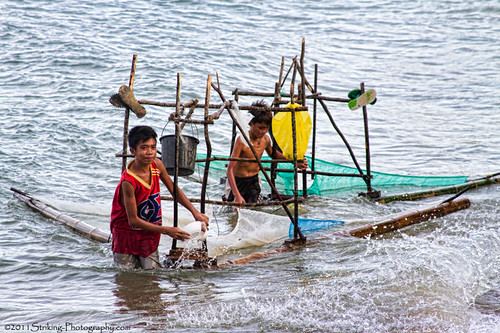Difference between revisions of "Who Can Be Adopted from Philippines"
(Created page with "{{#eimage:https://farm6.staticflickr.com/5109/5604711640_5800969b5a.jpg|410x579px|thumb|'''Two Filipino boys fishing.'''<BR/>Source: flickr.com.}} Because the Philippines...") |
|||
| Line 4: | Line 4: | ||
| − | '''NOTE:''' The [[adoption]] of relatives is common in Philippine culture. Learn more about [ | + | '''NOTE:''' The [[adoption]] of relatives is common in Philippine culture. Learn more about [https://travel.state.gov/content/travel/en/Intercountry-Adoption.html adopting a relative]. |
Latest revision as of 05:17, 10 July 2021
Because the Philippines is party to the Hague Adoption Convention, children from the Philippines must meet the requirements of the Convention in order to be eligible for adoption. For example, the Convention requires that the Philippines attempt to place a child with a family in-country before determining that a child is eligible for intercountry adoption. In addition to the Philippine requirements, a child must meet the definition of a Convention adoptee to be brought to the United States.
NOTE: The adoption of relatives is common in Philippine culture. Learn more about adopting a relative.
THE PHILIPPINES' ELIGIBILITY REQUIREMENTS:
Relinquishment Requirements: A child is "committed" by way of the "Deed of Voluntary Commitment," a document used by The Department of Social Welfare and Development (DSWD) asking for signature from the biological parents prior to matching the child with a prospective adoptive parent. The document must have the consent of the birth parent(s), releasing the child to DSWD for subsequent adoption. In the event that the child is abandoned or neglected and no parent is available to sign the "Deed of Voluntary Commitment," the DSWD, (upon the petition filed by the head of a licensed and accredited child caring agency or child placing agency or institution managed by the national government, local government unit, non-government organization, or by a provincial, city or municipal Social Welfare Development Officer who has actual custody for the child), shall issue a certification declaring the child legally available for adoption.
Abandonment Requirements: Under the new law, RA 9523, the declaration of abandonment of a child is no longer judicial in nature. In lieu of a court order, the DSWD issues a certification declaring a child legally available for adoption. The time period before a child is considered abandoned has been reduced to 3 months.
Back to Adopting from Philippines
